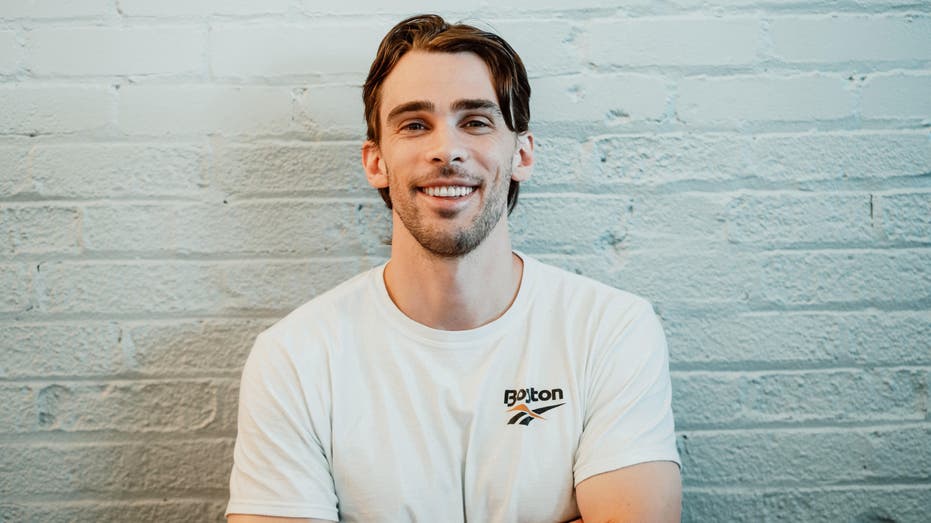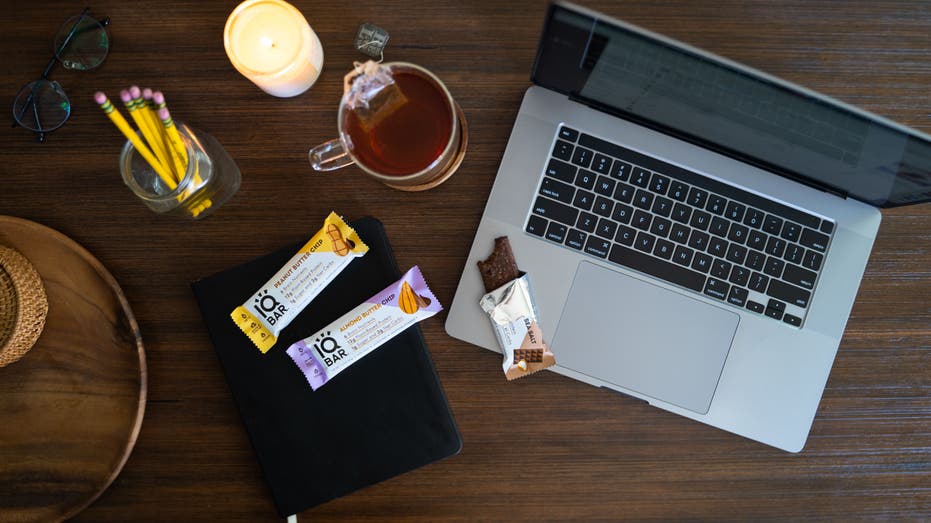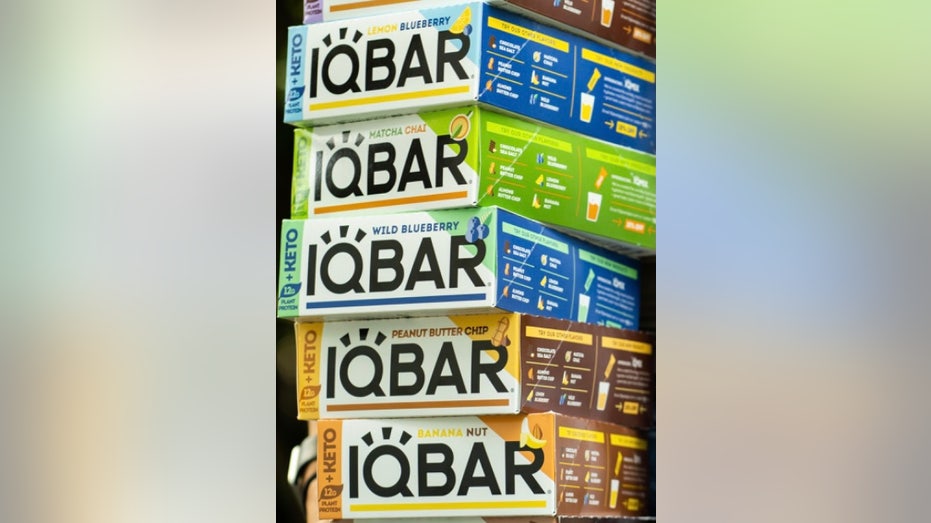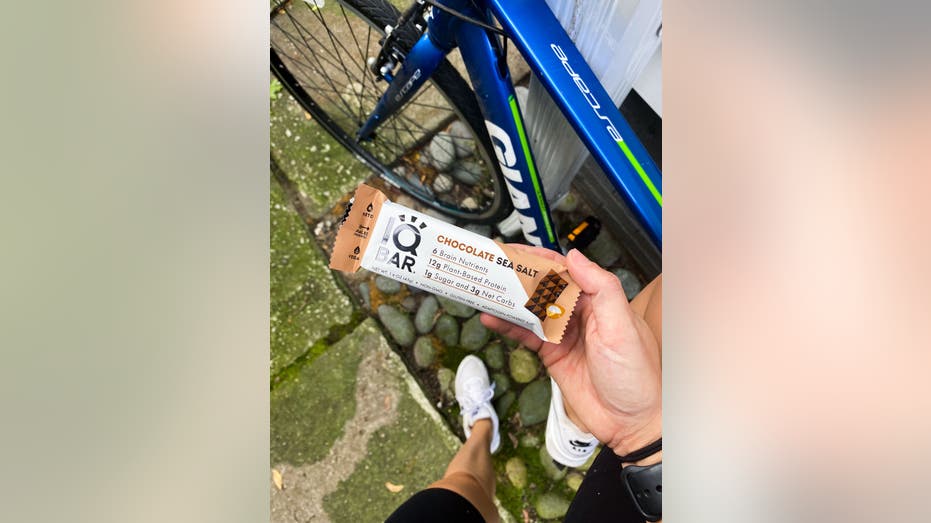Boston-based protein bar maker switches to US supplier amid shipping backlog: 'Massive boost to reliability'
IQBAR founder Will Nitze says, 'We are going to accept higher prices for higher reliability'
When will companies see a clearing from supply chain impacts?
Audent Global Asset Management CEO Paul Feinstein makes his case for profitable companies in the inflationary market.
Supply chain and shipping bottlenecks are "changing the calculus" for companies who have been forced to switch their suppliers, with one small business owner telling FOX Business that decisions are "no longer all about price" but "reliability."
Will Nitze, the founder and CEO of IQBAR, a Boston-based startup that makes keto-friendly protein bars and snacks, reflected on the challenges his business has faced amid the COVID-19 pandemic in an interview with FOX Business.
"The original challenges were outbreak-related, and it was all understandable to a degree because of this once-in-a-century pandemic," Nitze said. "Now that everything has calmed down a bit, we are seeing wave two of these issues — supply chain issues and fundamental shifts in labor."

Will Nitze founded Boston-based IQBAR in 2018.
The company sells its products through dozens of retailers, including Walmart, Kroger, Sprouts and Rite Aid, as well as through Amazon and its own digital platform.
Nitze explained that IQBAR was directly affected by labor shortages, specifically at rail yards, where he said millions of wrappers for his products were stuck for nearly half a year.
"We used to import our wrappers from Asia," Nitze said, noting that there has been a backlog of thousands of containers in a Chicago rail yard. "It was so frustrating. After 12 weeks of waiting for the wrappers to be unloaded at the rail yard, we decided it would kill our business if we waited any longer."
"We pivoted," Nitze explained, saying he "found someone domestically who could make a comparable wrapper."
"It is more expensive, but now, the costliest thing you can do is be out of stock," Nitze said.
Nitze said that IQBAR will "definitely stick with" purchasing wrappers in the United States.
"This supply chain crisis is changing the calculus for business owners," Nitze said. "It is no longer all about price, it is about reliability. We are going to accept higher prices for higher reliability."
RISING FOOD COSTS POUNDING SHOPPERS' WALLETS; ‘NO CHOICE’ BUT TO INCRASE PRICES: GOYA CEO
He added: "Given the mess that importing and exporting has become, the fact that something is being made in the lower 48 states alone provides such a massive boost to reliability."

IQBAR shifted production of wrappers to the U.S. amid the supply chain crunch. (IQBAR )
The problem, Nitze said, is that there are "certain things you can’t get in the United States," like certain sweeteners used in keto products, like allulose.
"That supply is made abroad," Nitze explained, saying that "a wave of small businesses were told you can’t get this ingredient in 2021 — period."
"It created nightmare scenarios where people had to reformulate their products," Nitze said, noting, though, that it just "expedited a shift" IQBAR planned to make.
SEN. JOSH HAWLEY BILL WOULD REQUIRE 50% OF VALUE OF A GOOD TO BE PRODUCED IN US
"This situation has forced us to make hard decisions, and the one at hand for me is your input costs are going up, so will you then raise prices for customers? That’s a big one," Nitze said. "If you’re Apple and selling an iPhone and it is a one-of-a-kind product, you can get away with that, but in hypercompetitive categories like protein bars, you will price yourself out of much of your business and much of your customer base by doing that."
Nitze said IQBAR has "opted to not raise prices" for customers and instead "aim to drive cost efficiencies elsewhere, accept higher ingredient prices, and do everything we can to mitigate increases, by buying higher volumes at a time and entering into contracts with suppliers who can guarantee that volume."

"There is no doubt it will hurt our margin and profitability and ability to hire new people," Nitze said.
Nitze said IQBAR has left "at least $1 million in sales on the table this year alone due to supply disruptions."
"We have made it. We survived, but we limped through the year," he said.
Despite facing "chronic" supply chain and operational challenges throughout the year, Nitze told FOX Business IQBAR is slated to exceed $7 million in sales in 2021.
As for shipping backlogs, Nitze said the government has been "slow to react."
"Increase in demand should be a good thing," Nitze said. "The inability to plan for the strain this surge in demand puts on ports, for example, is certainly not a positive."
Meanwhile, the company, which has just nine employees, is not directly impacted by the Biden administration’s Occupational Safety and Health Administration vaccine and testing rule, Nitze said, but noted the company "just one piece of a value chain."
GET FOX BUSINESS ON THE GO BY CLICKING HERE
"We are the end seller of the product, and every node in the value chain before us is much bigger than us," Nitze said. "We get a ripple effect when there is any government mandate. It doesn’t have to directly apply to us to impact us. It just has to affect one node in the value chain."

"It impacts every stage of the chain — raw inputs, someone mining for salt, all the way through to ingredient manufacturers, who then sell them to us," Nitze continued. "We are the end stage in that chain."
He added: "We look at any change, like labor shortages or unemployment benefits, not how it relates to us directly, but how it relates to our entire supply chain."
As for ways in which the Biden administration can help small businesses like IQBAR, Nitze said funding the Small Business Administration and disbursing more loans could be critical.
"Give small businesses who have a really hard time accessing capital, give them a break," Nitze said. "The PPP loans were incredibly helpful, and yet, we’re now a year later and things are just as bad as they’ve ever been, and there is no additional PPP loan."
CLICK HERE TO READ MORE ON FOX BUSINESS
Looking ahead to 2022, Nitze said it is "touch and go."
"I can’t give an answer to what this will look like in 2022, because if you asked me at the end of 2020 what 2021 would look like, I would have been completely wrong," Nitze said, but he offered a grave prediction.
"I don’t think any of this is getting better," he said. "I think we’ll get better at living in this environment and engaging in some of these tactics, but it doesn’t look good."





















